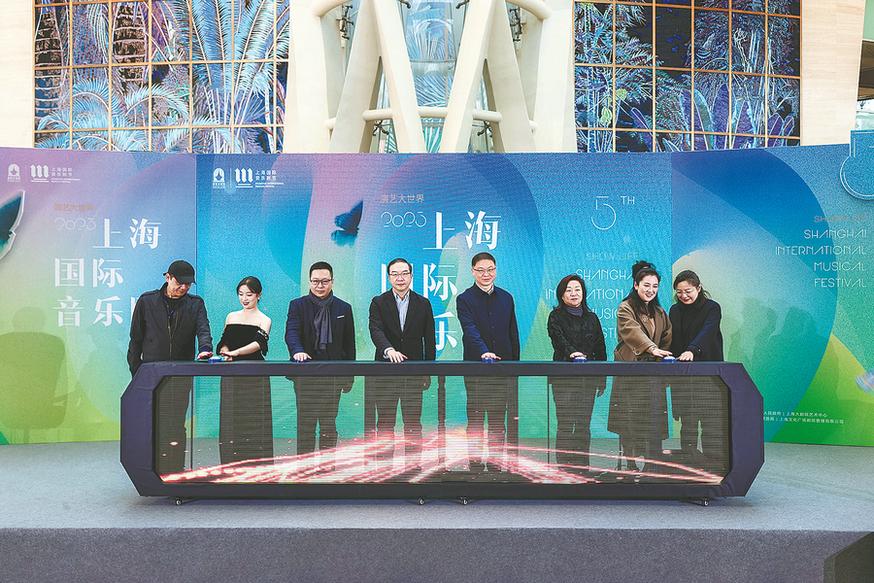

Shanghai Culture Square theater announced the launch of a new musical center and its first foreign musical production in three years at the opening of this year's Shanghai International Musical Festival on Monday.
Fei Yuanhong, deputy general manager of the theater, says French musical Romeo and Juliet by Gerard Presgurvic will be shown at Shanghai Culture Square in May. Now that China's communication with the international musical theater sector has resumed, the Shanghai theater has pledged to present major foreign shows without compromising its support for original Chinese productions.
Located at Gate No 4 of Shanghai Culture Square, the new musical center is an underground area of the theater, with refurbished offices, rehearsal rooms, a recording studio and conference halls.
Zhang Jie, general manager of the theater, says the center will be "an incubation and creative center, a performance venue for experimental productions, an information center about musicals and a place for musical and theater lovers to meet up".
The gate used to be the backstage door of the theater where fans would wait for performers to emerge after shows to request autographs.
"We hope after the opening of the new center this backstage-door experience will be reserved for musical lovers," says Tang Yuze, a musical lover, and one of the actors for the first two immersive theater productions presented in the new space since Saturday.
The Smile off Your Face and A Game of You are one-on-one theater experiences produced by Ghent-based theater collective Ontroerend Goed from Belgium.
Both shows were adapted into Chinese and produced by Shanghai-based Tempest Projects and Fairchild Theater Production.
Weng Shihui, producer of the Chinese shows, says A Game of You is a"30-minute participatory experience blending theater and game "and "a psychological game of manipulation, ego, judgment and self-conscience", while during The Smile off Your Face, members of the audience are blindfolded and taken individually to a room after being put in a wheelchair. In the room, their replies to questions form part of the play.
With no stage or light, the experience is a "message of imagination and aromatherapy, and deconstruction of theater".
Weng says the pandemic made theater producers in China turn to small-scale shows for better control of the risk against investment.
Tang says he has noticed small immersive theater productions sprouting around Shanghai.
Another actor featured in the two shows is Xu Rui, who is also a theater director. She says the performance brought her unprecedentedly close to the audience and allowed her to observe their response to her every move.
"This experience has helped me to break away from my preconceived ideas about theater, and gave me confidence that audiences in China are ready for more cutting-edge contemporary theater experiences. We, theater workers, should be better prepared," she says.
The venue plans to present thousands of shows of A Game of You and The Smile off Your Face in the coming four months, Weng says.
This is the fifth year that the theater is hosting the annual musical festival since the Show Life project, initiated by the city's Huangpu district's government, which started to sponsor the festival in 2018, Zhang says.
This year, the festival consists of six Chinese musicals showing at the venue's main theater from February to May. Among them is a musical rendering of Hamlet in Chinese by Shanghai-based director Xu Jun.
One popular event at the festival is the musical singing competition that has been held since 2019. More than 1,900 people in China participated in the competition for the past two sessions, and 22 award-winners have turned into professional musical performers.
In May, an international forum on musical theater will be held as the closing event of the festival. During the forum, industry insiders will discuss the rebooting of the market and further international communication.
Last year, the Shanghai Culture Square presented 115 shows in its main theater, 74 percent of which were musical theater productions. It also held 94 shows for six of its own productions in 14 Chinese cities, Zhang says.
